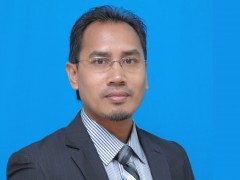News

Alarm bells ring over mental illness
Date : 08 August 2018
Reported by : Muhammad Ataur Rahman
Category : News
Tweet This
PETALING JAYA: By year 2020, depression is expected to be a major mental health illness among Malaysians, says Tan Sri Lee Lam Thye.
“Most people find it hard to deal with the problems they face at work and cannot handle the stress,” said the Malaysian Psychiatric Association (MPA) patron.
“And it is harder when an individual faces problems from family members and do not receive emotional support.
“There are higher chances of people keeping their thoughts and emotions to themselves when they do not find a way to vent out their frustrations,” he said in a statement yesterday.
To address this, he said, society needed to adopt measures to prevent depression and anxiety, such as exercising consistently, sleeping at least eight hours a day and avoiding social media platforms such as WhatsApp at least 45 minutes before going to bed.
According to the Psychiatry Department of Universiti Malaya Medical Centre, Lee said, depression and anxiety could be treated if detected early.
Psychologists say socioeconomic reasons are one main contributing factor to depression and anxiety disorders.
Consultant psychiatrist and former MPA president Dr Abdul Kadir Abu Bakar said bread-and- butter issues contributed to depression and anxiety disorder.
“Unemployment, poverty, working as a single mother – these are social determinants that could lead to depression,” he said, adding that severe depression affected about 2% of the Malaysian population.
Policies to alleviate poverty and improve social cohesion should be encouraged to address this, he said.
For mental health illnesses in general, Dr Abdul Kadir said, about 11% of the population suffered from some form of mental health illness in 2006.
“This figure has increased to 29% in 2015,” he said.
Consultant psychiatrist Prof Dr Ramli Musa from the International Islamic University Malaysia said socioeconomic difficulties and lack of communal support could trigger depression.
“There are people working two jobs at the same time. Parents are spending so much time trying to earn a living that they are stressed out – and their children are neglected,” he said.
To allow for early detection of mental health issues, he said, effective mental health screenings and assessments should be developed and made accessible to the public.
Malaysian Mental Health Asso-ciation president Datuk Dr Andrew Mohanraj said socioeconomic problems might lead people to develop reactive depression, which is depression in res-ponse to external circumstances.
“However, a significant portion of them suffer from endogenous depression, which means there is a genetic basis for their illness,” he said.
However, Dr Andrew said socioeconomic factors could perpetuate depression in those who suffered from endogenous depression.
He stressed that clinical depression was likely to overtake cardiovascular diseases as the number one cause of disability in the workplace by 2020 to 2030.
“According to the World Health Organization, developed countries will see depression as the number one cause of disability in the workplace in 2020 and in the developing world by 2030,” he added.
Dr Andrew said the economic impact of depression in the workplace should be highlighted as there was inadequate research into the issue.
“In 2017 alone, 18,000 new cases of depression was diagnosed by the public health sector in Malaysia,” he said.
Read more at: https://www.thestar.com.my/new...








